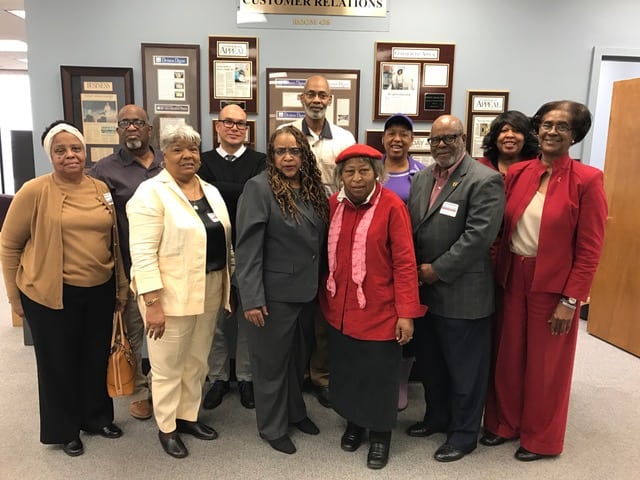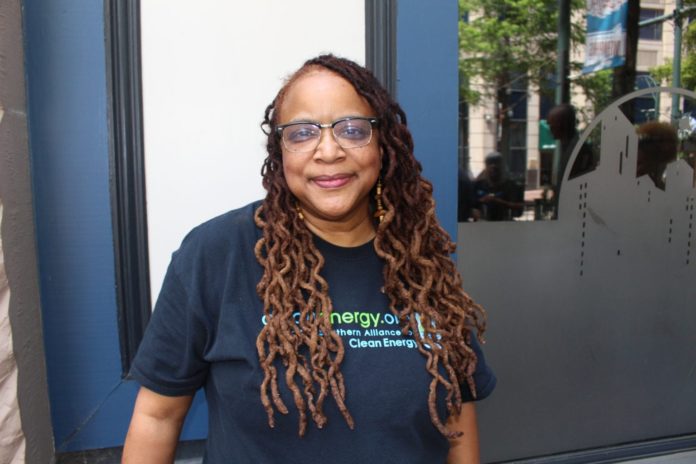
by Sandra (Saidi) Upchurch, Special to The New Tri-State Defender
Quite often, I have been asked by strangers, “sister, can you spare your change with me?” Usually, the request is money to buy food or gasoline. If I had any spare change I would gladly give it, but sometimes I wondered if the person really needed my change for food or for some other reason.
One day I ran into an old friend from childhood who asked me for my spare change. I learned that he’d lost his job due to cutbacks, had no income and his utilities were disconnected. For two months, he and his family lived in the house with no utilities. Then he was able to secure another job that paid much less, but it was enough to prevent him from qualifying for emergency utility bill paying assistance.
By the time I saw him the weather was starting to get colder and he said to me, “I’ve got to do all that I can do now so, can you please spare your change?”
I no longer concern myself about the intentions of people who ask for my spare change. I just give it from my heart.
My sisters and brothers, I am writing to inform you of a valuable program called Share the Pennies, an assistance program that was redesigned at the request of several African-American community leaders, including members of MLGW’s Neighborhood Advisory Council (NAC) and Just Energy Memphis, a coalition led by the NAACP, Southern Alliance for Clean Energy (SACE) and the Sierra Club.
As an energy justice advocate and firm believer in the principles of Kwanzaa, I see how the African-inspired philosophical framework of the Nguzo Saba (“seven principles”) resonates well with this redesign. Share the Pennies is a customer-funded program that will help some of the most vulnerable residents in the city ease their energy burden through weatherization grants for qualified low-income households, including the elderly and disabled.
So, when you read or hear something about the Share the Pennies, please know the following:
Umoja: We – the MLGW’S Neighborhood Advisory Council (NAC), Just Energy Memphis (NAACP, Southern Alliance for Clean Energy, Sierra Club), Memphis City Council, Habitat for Humanity, Le Bonheur Children’s Hospital, Healthy Homes Partnership and MLGW’s Board of Commissioners – stand together in support of the Share the Pennies program. Now, we ask you to stand with us in unity.
Kujichagulia: We are determined to address and help resolve the energy burdens in our city. Memphis has the highest energy burden of any major metropolitan city, with customers paying an average of 6 percent of their annual income on utility bills, according to national advocacy group American Council for an Energy-Efficient Economy. Nationally, customers are paying only 3 percent of their income on energy bills.
Economically disadvantaged and minority customers are paying an average of 13 percent of their income, with some families paying 26 percent of their income, to keep the lights on. That’s more than four times the city average. These high utility bills are contributing to the cycle of poverty in Memphis, where currently nearly 50 percent of children are living in poverty.
The NAACP sponsored a webinar last week titled “Lights Out in the Cold: Reforming Utility Shut-Off Policies as if Human Rights Matter,” which explored the disproportionate energy burdens experienced by low-income and communities of color and summarizing policies, practices, and programs in all 50 states and the District of Columbia involved in utility disconnections. In a 2011 survey conducted by the National Energy Assistance Directors’ Association results revealed that life-threatening consumer trade-offs had to be made by low-income households in reaction to high utility bills:
- 24 percent went without food for one day
- 37 percent went without medical or dental care
- 34 percent did not fill a prescription or took less than the full dose
- 19 percent had someone become sick because the house was too cold
- 33 percent used the kitchen stove or oven to heat the house
It will take determination to reduce burdens like these in Memphis.
Ujima: We worked collectively and responsibly with focus groups from the community to redesign and expand the Share the Pennies program. On average, an MLGW customer would contribute 50 cents per month or $6 a year into the new round-it-up program. The cap for yearly donations is $11.88. Any customers who do not wish to round up their bills can easily opt out of the program.
Ujamaa: We embrace the aspect of cooperative community economic stability through job creation. With increased home-weatherization improvement work, there will be an increased need for more qualified contractors and energy technicians to perform the work. We are working with city leaders and utility staff to ensure a majority of any new jobs created will be filled by people in economically disadvantaged communities and minority residents/contractors.
Nia: We have a common purpose to help the most vulnerable residents in our city ease their energy burdens. Energy-efficiency improvements can help lower bills by up to 25 percent – which means saving around $63 on what would normally be a $250 utility bill. Money saved on utility bills can be used for families’ health needs, basic necessities like food, and other household needs – helping to create more economic stability for families who are in desperate need.
Kuumba: We have made use of our creative energies and time to create a continuous stream of funding for home weatherization projects. Historically, the Share the Pennies program had a small budget of only about $35,000 to $40,000 a year, which is not nearly enough to keep up with the number of requests for weatherization grants and allowing MLGW to weatherize only around 200 homes over the past three years. The current underfunded program also has a backlog of 340 requests for grants. If 80 percent of customers (residential and commercial) participated in the redesigned program, it would generate $2.5 million per year – money that would be used to help more families receive energy-efficiency improvements that would help lower extreme energy bills.
Imani: We express faith by drawing upon the best in ourselves and by striving for a higher level of life for humankind. We are grateful to Memphis City Council member Patrice Robinson for having faith in this project and for her tireless leadership in garnering full council support. In January 2017, the Memphis City Council unanimously voted to send the Share the Pennies redesign proposal to the MLGW board.
“This is about Memphians helping Memphians,” Robinson said in a podcast interview several months ago. Expanding Share the Pennies is a “major opportunity,” one that could help reduce income inequality by reducing energy inequality, said Madeleine Taylor, former executive director of the NAACP’s Memphis branch and a member of Just Energy Memphis. In February 2017, the MLGW Board of Commissioners voted 4-0 in favor of redesigning the Share the Pennies program, generating increased funding by creating an automatic round-up of customers’ bills and giving customers an opportunity to opt-out of the program if they do not want their bills rounded up each month.
The program change is expected to take effect Jan. 1, 2018. Prior to automatically enrolling all customers into Share the Pennies, MLGW in July began an education campaign to make customers aware of the change, highlight the program’s benefit to the community, and explain options for opting out.
When you think about whether or not to take part in the Share the Pennies program, think about the group of people who started this and are asking you this now, “Sister, brother, can you please spare some change?”
(Sandra (Saida) Upchurch is Energy Justice Manager, for the Southern Alliance for Clean Energy.)




